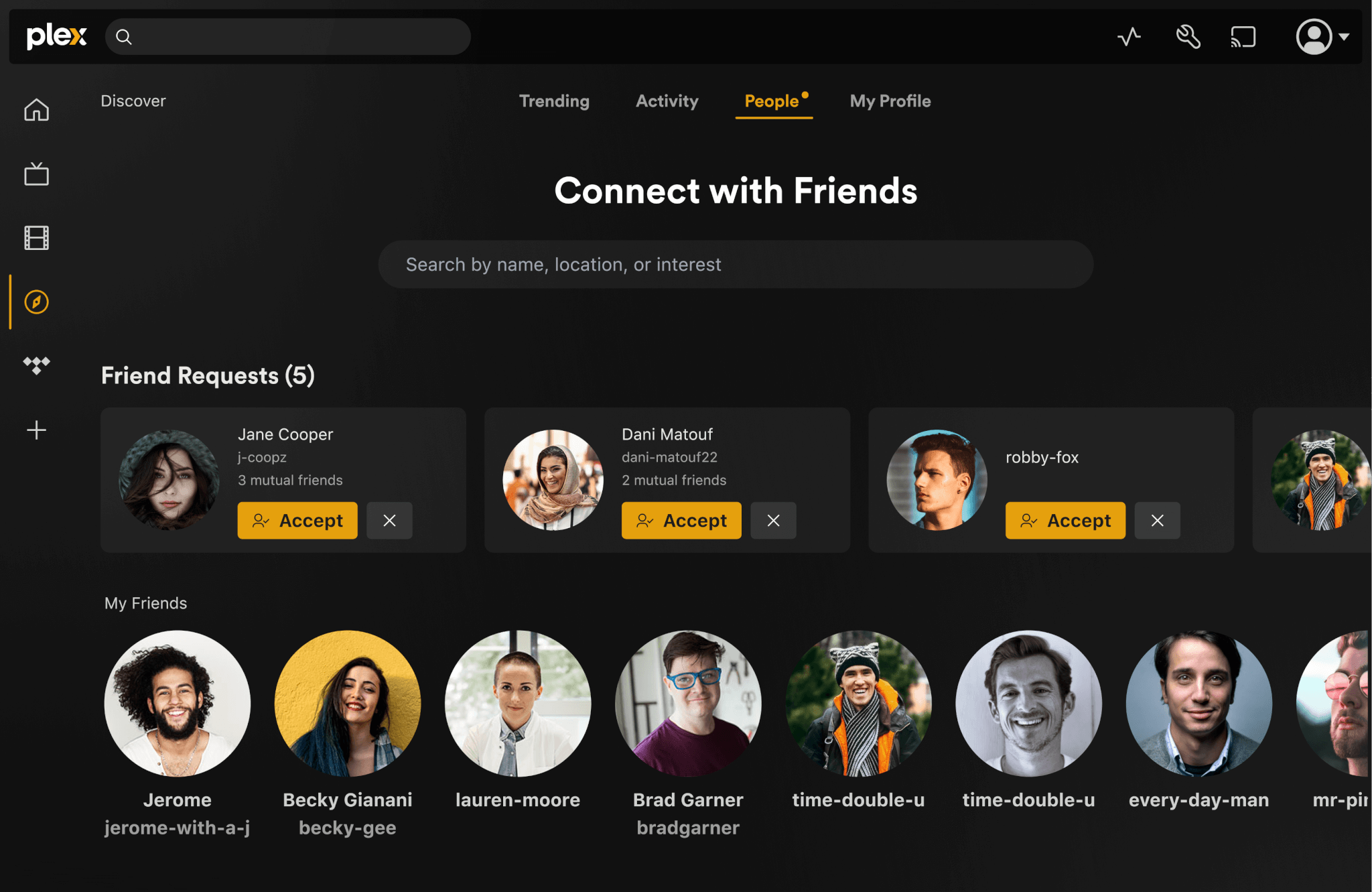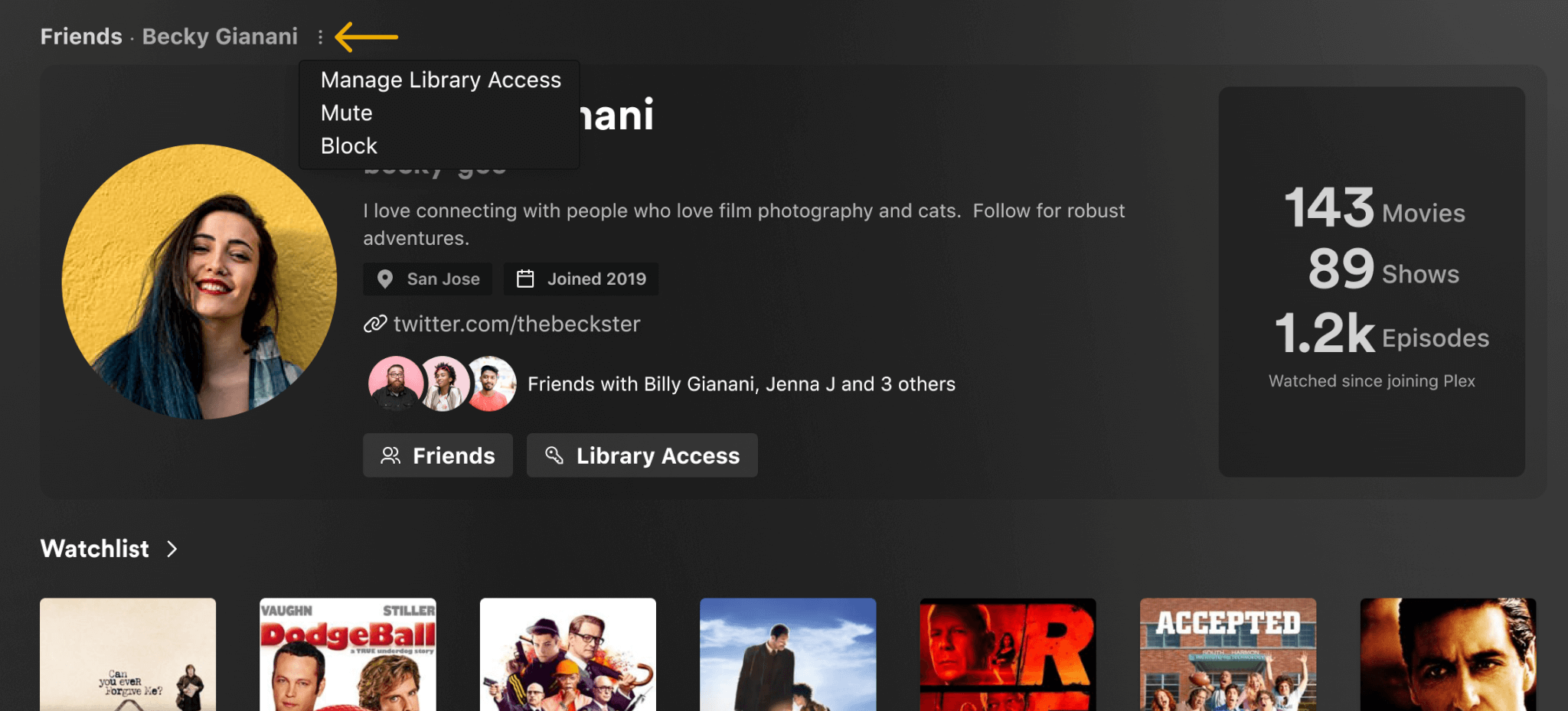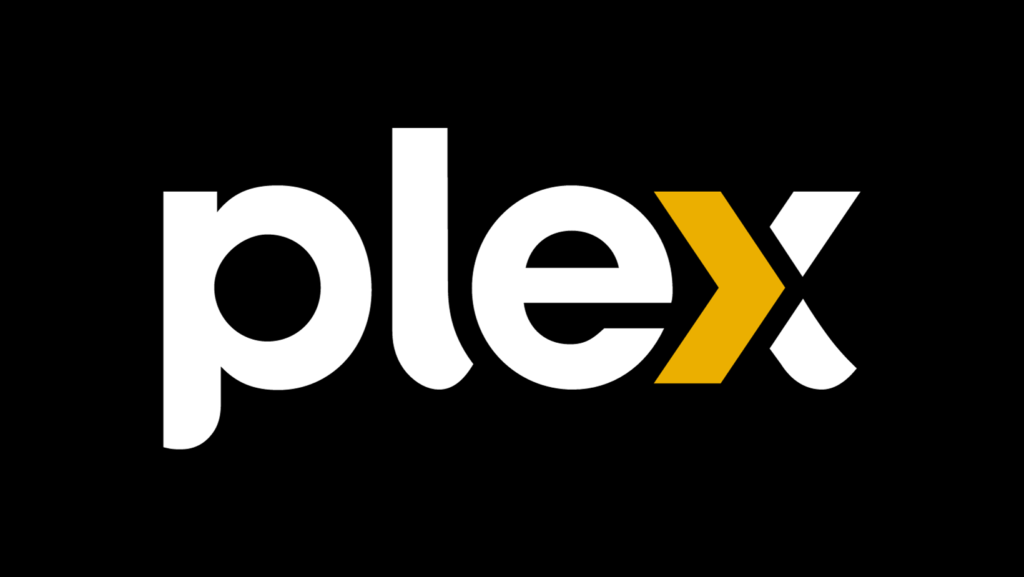Plex is a popular streaming platform that allows users to operate their own personalized media server, curating their libraries with content from free streaming sources or media files they already possess. The intention is to offer a uniquely tailored viewing experience, with easy access to a personal collection of music, television, film, and more.
Plex recently launched a new feature, “Discover Together,” to enhance user engagement and foster community. It lets friends share libraries and receive recommendations based on mutual viewing habits. Yet, controversy arose with an added “week in review” element that discloses users’ viewing history to contacts. This opt-out feature stirred a heated debate within the Plex community over privacy issues and the risk of revealing sensitive viewing choices.
The “Discover Together” Feature: A Double-Edged Sword
The “Discover Together” feature aimed to create a social media ecosystem for shared experiences and mutual influence on recommendations. By transforming solitary media consumption into a communal activity, users could explore new content, understand friends’ preferences, and discuss common interests. This approach potentially makes media discovery more engaging through community power. However, it also poses potential privacy challenges.

Image source: Plex
Automatic Opt-In and Privacy Concerns
Unfortunately, Plex’s noble vision for a communal media experience was overshadowed by a fundamental misstep: the automatic opt-in nature of the feature. With the introduction of the “Discover Together” feature, users found that their viewing histories were being shared with their contacts without their prior explicit consent. This decision to make the feature opt-out rather than opt-in has sparked outrage and caused a considerable uproar in the Plex community.
The problem lies not in the features themselves but in how Plex implemented them. By automatically opting users into the feature, Plex violated one of the fundamental principles of digital privacy: user consent. Personal data is a valuable asset, it is essential that users have control over who their data is shared with and how it is used. By default, a user’s viewing history should remain private unless they choose to share it.
Plex’s decision risks exposing sensitive viewing choices to contacts. The controversy around Plex’s “Discover Together” feature emphasizes the balance between user experience and privacy. It highlights the need for user consent, warns against auto opt-in, and underscores the risks when privacy isn’t prioritized in user experience design.
A Breach of Trust
Most users swiftly criticized Plex for the privacy issues of the “Discover Together” feature, seeing it as a trust breach. They voiced concerns on platforms like Plex’s subreddit and self-hosting blogs, and some even published guides to opt-out of the feature. This incident emphasizes the need for digital platforms to prioritize user privacy and maintain trust.
The Consent Issue
User feedback paints a clear picture of the frustration within the Plex community regarding the ‘Discover Together’ feature. A recurring theme in the comments is the issue of consent. Many users expressed their displeasure over being automatically opted into a feature that shares their viewing history. They argued that Plex should have made the feature opt-in, underscoring the principle that user consent should precede any sharing of personal data. Users expressed their disappointment at Plex’s decision to prioritize a ‘community’ feature that lacked proper privacy considerations over enhancements that could have improved the core functionality of the platform.
Such comments serve as a stark reminder of the potential pitfalls of ill-considered feature roll-outs. As these users illustrate, a failure to put user consent and privacy first can lead not only to an erosion of trust but also to a perceived decrease in the quality of the overall product.
Privacy versus Engagement
The “Discover Together” feature opens a Pandora’s box of potential social implications, ranging from mild awkwardness to serious privacy violations. At the one end of this spectrum, there’s the risk of simply embarrassing users by revealing guilty pleasures or guilty binge-watching habits. At the other extreme, it could expose sensitive information such as political affiliations.
User Empowerment and the Need for Transparency
Plex and others have reacted to user backlash by providing guides to opt-out of the “Discover Together” feature. While this empowers users to manage their privacy, it’s a reactive solution. Privacy controls should be clear and transparent from the start, with opt-in protocols. This highlights the need for platforms to prioritize user privacy in initial design and rollout, not just as an afterthought addressed later.

Image source: Plex
Balancing User Engagement Features with Privacy
Introducing features like “Discover Together” on platforms like Plex can boost user engagement, yet risk infringing privacy. The challenge is to enhance functionality without compromising user trust and privacy, requiring careful design, robust testing, and clear communication about new features. A privacy-first approach, prioritizing user consent, is essential. Balancing engagement with privacy isn’t just technical but also an ethical challenge, defining how platforms respect their users.
Lessons Learned and the Way Forward
User consent, transparency, and respect for personal boundaries are essential to ethical digital services. How user information is handled significantly affects user-provider relationships. Prior consent before exposing private information is key for user privacy. Transparency about changes affecting privacy is an obligation. Clear communication helps users understand their data usage and control it. Digital services are also social spaces, where respecting boundaries ensures user privacy and a safe, respectful digital environment.

